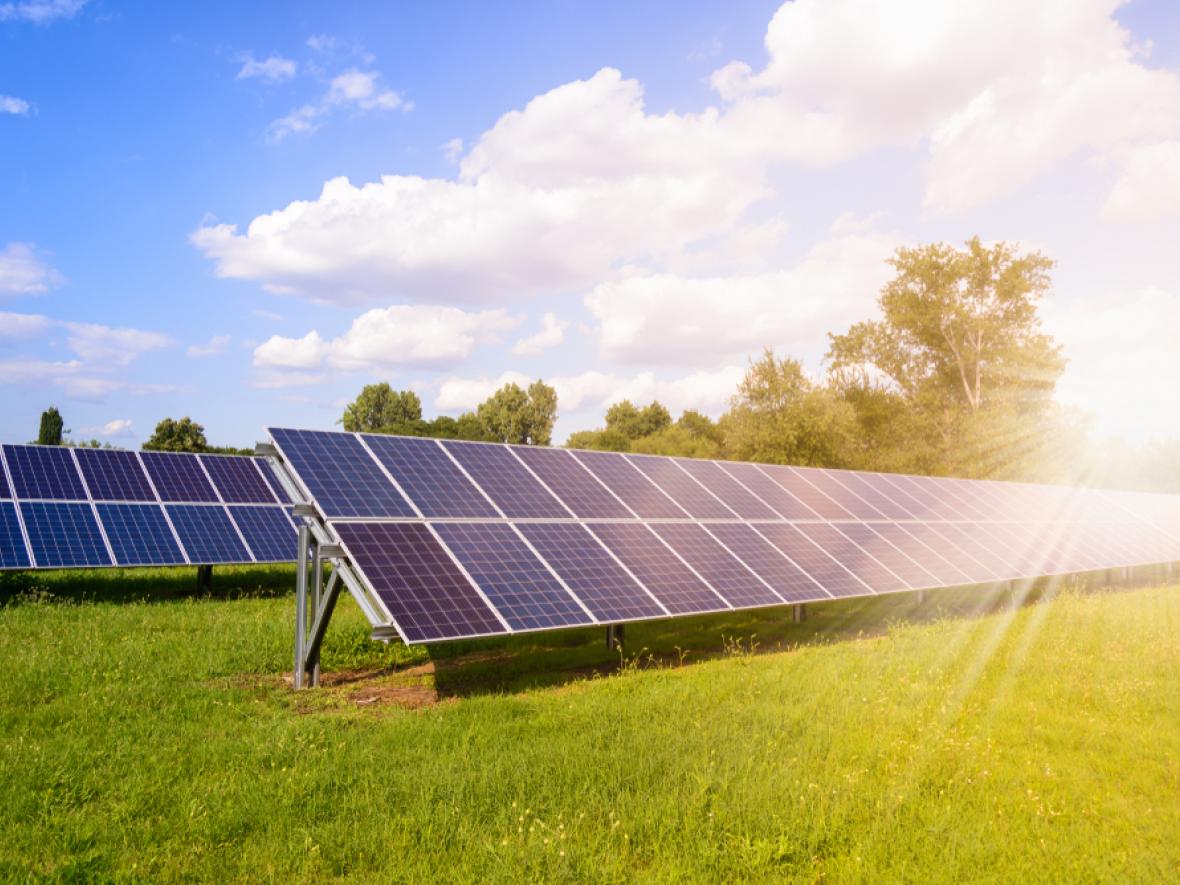
On the roof or on the ground—which is best for solar for your home?
We’ll help you determine the right solar solution for you.
Did you know roofs aren’t the only place to install solar panels for your home? If you have done initial research on installing solar panels in Arizona for use in powering your Phoenix and Maricopa County house, you may already know that ground mounted solar panels are also an option for taking advantage of the renewable energy of solar PV (photovoltaic) panels.
But how can you know which solar panel mounting option is going to be best for the peak sun and energy needs of your home? Here is what you need to know about mounting your residential solar PV systems, and how to make the best choice for your renewable energy investment.
Ground Mount vs. Roof Mount
There is no obvious benefit to solar panels installed on the ground instead of mounting them on the roof—it will depend on many factors, such as roof size, direction and pitch, obstructions, your home energy usage, and more.
Roof Mounted Solar | Ground Mounted Solar | |
South-facing orientation | ✓ | ✓ |
Other direct sunlight orientations | Assess solar roof potential | Assess solar ground mount potential |
High roof obstructions (such as shading, trees, skylights) | Assess solar roof potential | ✓ |
Low roof obstructions | ✓ | ✓ |
High roof square footage | ✓ | ✓ |
Low roof square footage | Assess solar roof potential | ✓ |
Optimal roof pitch | ✓ | ✓ |
Less optimal roof pitch | Assess solar roof potential | ✓ |
Large available property space | ✓ | ✓ |
Small available property space | ✓ | Assess ground mount potential |
High electricity usage | Depends on size of roof to accommodate solar panels to meet energy consumption | ✓ |
How Big Does a Roof Need To Be for Solar?
As you start sizing up your home’s solar potential, you may find yourself wondering if your roof is even big enough to fit the necessary amount of mounted solar panels. The rule of thumb we use as a starting point for roof mounted solar arrays is: if you can fit three cars side by side on your roof, you probably have enough room to fit your solar array.
Still not sure which mounting option is best? There are a few more questions to answer before you make the decision for your residential solar system!
Other Questions to Ask Before Installing Solar
At Energy Solution Providers, one of our top priorities is pairing our customers with the most efficient and durable residential solar PV systems, based on the energy needs of their homes. However, there are also a few things you should take into account before the first panel is even installed, which can help you decide between installing your solar panels on the ground, or on the roof.
Do You Like the Look of Solar Panels on a Roof?
This may be a matter of aesthetics, but it is important to factor in the look of solar panels before installation. If you like the look of your home as is, and you have unused property that receives unobstructed sunlight, ground mounted solar panel installation may work out better in the long run.
Will Any Future Obstructions Be Built Around Your Solar Panels?
Most roofs are not in danger of an unexpected obstruction popping up in the next 25 years (which is the life expectancy and warranty of a solar PV system).
However, if you are planning on a ground mounted solar PV system, are there any planned construction projects around that area of land that could reduce the peak sun it sees? Are there any development plans near your home? Of course, you can’t predict everything over the next couple of decades. But a little planning now can save you a headache in the future!
Want to Start Your Solar Journey? Get a Free Solar Quote!
No matter your questions when it comes to residential solar energy, Energy Solution Providers is your solar company in AZ when it comes to planning for a future of renewable energy. With our free solar quote, we can help you with how much roof mounted or ground mounted solar panels cost, how much you can expect to save on your energy bills with solar, and even how to utilize all of the savings of the Federal Solar Tax Credit to reduce your installation costs.
